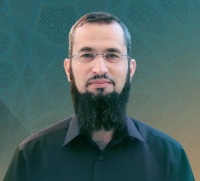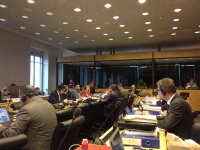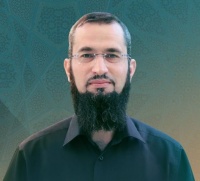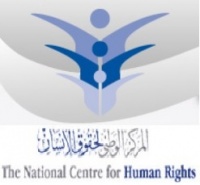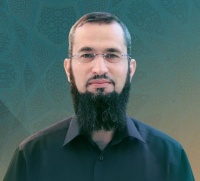Jordan: Professor Eyad Qunaibi Sentenced to 2 Years in Prison for Facebook Post
On 7 December 2015, Eyad Qunaibi, a 40-year-old professor in pharmacology, was sentenced to two years imprisonment by the State Security Court for "incitement against the political regime" for having published a Facebook post, on 10 June 2015, criticising, among others, his country's ties with Israel and the westernisation of Jordanian society. Considering that the free expression of Dr Qunaibi's critical opinion should in no way constitute a crime, Alkarama called on the United Nations Special Rapporteur on the promotion and protection of the right to Freedom of Opinion and Expression (SR Freedex) asking him to urge the Jordanian authorities to revoke their decision.
Jordan: Committee against Torture 2015 - Concluding Observations - 3rd Periodic Review
Jordan: UN Experts Concerned Over Situation of Torture
On 9 December 2015, the United Nations Committee against Torture (CAT) expressed its concern over the practice of torture in Jordan in its concluding observations, issued after the Committee analysed Jordan's National Report and engaged in a constructive dialogue with the State to assess the implementation of the Convention against Torture (UNCAT) in the country. The UN experts were especially concerned over the lack of appropriate criminalisation of torture in Jordan's legislation; the broad definition of terrorism applied by the State; the use of torture in order to extract confessions – in particular by the General Intelligence Directorate – and the conditions of detention and lack of fundamental guarantees for detainees. All the issues highlighted by the Committee had previously been raised by Alkarama in its shadow report sent to the CAT in view of the country's review.
Jordan: On the Use of Torture by Jordan Intelligence Services...
On 23 October 2015, Alkarama sent its shadow report on the use of torture in Jordan to the United Nations Committee against Torture (CAT), in view of the country's upcoming review by the Committee during its 56th session. Despite recognising that several positive steps were taken by the Jordanian government since its last review in 2010, Alkarama report highlights that torture and other ill-treatments in Jordan continue to be used, especially by the Jordanian intelligence services who systematically arrest, detain and torture opposition figures, peaceful protesters and media workers under the Anti-Terrorism Law, with the aim to provide the State Security Court (SSC) with "confessions" that will then be used as an evidence.
Jordan: Committee against Torture 2015 - Alkarama's Submission - Shadow report - 3rd Periodic Review
Jordan: Human Rights Activist Sentenced to 10 Years in Prison After Unfair Trial Before State Security Court
On 29 July 2015, human rights activist Amer Jubran was sentenced to 10 years in prison by the State Security Court following an unfair trial during which confessions extracted under torture were admitted as evidence. In view of this decision, Amer appealed to the Cassation Court, which has not considered his case yet. Following this, Amer's friends and family sent a communication to the United Nations Working Group on Arbitrary Detention (WGAD) in September calling upon the Jordanian authorities to release him immediately, as well as launched a campaign on his behalf.
Jordan: Professor Charged With "Incitement Against the Political Regime" for a Facebook Post
On 27 August 2015, Alkarama brought a second time before the United Nations Working Group on Arbitrary Detention (WGAD) the case of Eyad Qunaibi, professor and political critic charged with "incitement against the political regime" for having published an article on Facebook in which he criticised Jordan's ties with Israel, the Jordanian King as well as the "westernisation" of society.
Jordan: National Human Rights Institution Lacks Necessary Independence from the Executive to Perform its Role
On 16 July 2015, Alkarama submitted a report to the Sub-Committee on Accreditation (SCA) of the International Coordinating Committee of National Institutions for the Promotion and Protection of Human Rights (ICC-NHRI) on the Jordanian National Centre for Human Rights (NCHR), which will be reviewed at the SCA's next session in November 2015. Pointing out to its lack of independence from the Jordanian King and government, Alkarama solicited the SCA to downgrade the Centre's status from "A" to "B" as to indicate its lack of compliance with the Paris Principles, the international standards relating to NHRIs aiming to ensure their independence from the government and effective promotion and protection of human rights.
Jordan: National Human Rights Institution 2015 - Alkarama's Report on Country’s NHRI before the International Coordinating Committee of NHRIs
Jordan: Eyad Qunaibi, Detained For Seven Weeks for a Facebook Article, Risks Trial before the State Security Court for "incitement against the political regime"
On 3 August 2015, Alkarama sent an urgent action to the United Nations Working Group on Arbitrary Detention (WGAD) regarding the case of Eyad Qunaibi, a 40-year-old pharmacology professor who is known for being a prominent political critic, particularly active on social media. He hes been detained in solitary confinement since 15 June 2015 for having published an article on Facebook criticising Jordan's ties with Israel, the Jordanian King as well as the "westernisation" of society. After seven weeks of detention, Qunaibi has still not been brought before a judge and is likely to face trial before the State Security Court (SSC) simply for having exercised his right to freedom of expression.
 Algeria
Algeria Bahrain
Bahrain Djibouti
Djibouti Egypt
Egypt Iraq
Iraq Palestine/Israel
Palestine/Israel Jordan
Jordan Kuwait
Kuwait Lebanon
Lebanon Libya
Libya Mauritania
Mauritania Morocco
Morocco Oman
Oman Qatar
Qatar Saudi Arabia
Saudi Arabia Sudan
Sudan Syria
Syria Tunisia
Tunisia United Arab Emirates
United Arab Emirates Yemen
Yemen Other Countries
Other Countries

